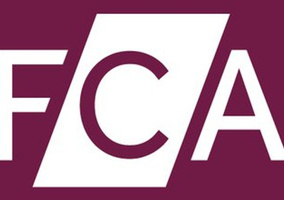Over nine in 10 charities have experienced at least one banking-related difficulty in the past two years, according to new research by the Civil Society Group.
The Civil Society Group published its Charity Banking Challenges 2024 report, which follows on its previous survey carried out in 2022, today.
Some 92% of the 1,907 survey respondents, representing charities with annual incomes from under £10,000 to over £100m, said they had experienced one or more issues related to banking in the past two years.
Three-quarters of respondents cited changing signatories on bank account mandates as their top challenge, followed by completing checks “not designed for charities” (40%).
Attending a bank in person for signatory verification and setting up dual signatories on accounts were also highlighted as challenges by more than a third of respondents.
Changing signatories ‘particularly burdensome’
The latest survey, which ran from March to May 2024, sought the views of people about the experiences of their charitable organisations in relation to banking services.
The report highlights challenges that fit into three main themes: the need for improved knowledge and understanding; the need for improved communication; and the need to reduce complexity and provide explanations.
On the difficulties of changing mandates, the report says that outdated signatories might remain on bank accounts, which poses “a significant risk to the organisation’s financial security”.
“Since trustees serve on a voluntary basis, the time-consuming procedures involved in updating signatories are particularly burdensome for individuals who may also have full-time employment or caring or other responsibilities which require their time,” it says.
“The length of time taken to enact changes can also be a contributing factor to trustees remaining in role, particularly when this takes months.”
One of the respondents said their charity is currently in breach of its financial safeguarding guidelines as “we’ve been trying without success to change signatories on our account since Covid-19”.
“Previous signatories are no longer involved but still having to drag them out of retirement to sign cheques,” they said.
Communication issues with banks
Alongside administration difficulties, respondents said that communicating with their banks was a “significant” challenge and a stress factor.
Over a quarter (27%) reported that they had been unable to obtain clear explanations from their banks concerning issues they have encountered while one in five said they had felt worried or threatened because of communications received from their banks.
The report also cites a lack of banks’ understanding of charities, with 29% of respondents being told that documents provided, such as founding ones, were not acceptable despite complying with charity regulations.
Similarly, 26% said they had been asked to provide documentation that either does not exist or is impossible to procure such as a “certificate of registration”.
When trying to find a bank willing to accept a charity as a new customer, 22% reported difficulties.
Among charities operating internationally, a quarter said they struggled to transfer funds from their UK bank accounts to overseas accounts, which rises to 75% for those involved in international development work.
“Such barriers significantly hinder the operations of charities working in global contexts,” the report says.
Impact on recruitment and retention
The report says the availability of in-person banking services remains “limited across rural, suburban and urban areas”.
Most respondents (56%) said they had incurred “excessive time costs” while trying to access basic banking services, with 12% spending over three hours per week on banking-related tasks.
Meanwhile, 17% reported incurring “unreasonable financial costs” to access banking services.
Some 37% reported that their nearest bank branch is located between three and 10 miles away, with most saying it takes 10 to 30 minutes to reach their closest branch.
“However, for nearly one-third of respondents, a single journey to the nearest branch takes between 30 minutes and one hour,” the report says.
Banking challenges have also “adversely affected the recruitment and retention of staff, trustees and volunteers”, the report says, “with a significant number stepping down due to the persistent banking issues faced by their organisations”.
One respondent said: “We’re a small community group [for children], and I spend many hours running the sessions, and doing admin around the edges. It’s a joy to work [with the children], but I came very close to quitting last autumn due to the abysmal, hugely time-consuming and threatening customer service we received.”
Another commented: “As a volunteer in a charitable organisation, we find we’re devoting a lot of time and energy to ever-changing and fiddly banking requests and complicated forms which severely impacts our willingness to give that volunteer time to supporting our young members.
“Having to rely on the good nature of volunteers and their time to jump through the banking protocol hoops just to access our own (painstakingly earned) low funds is really taking its toll on the volunteer goodwill.”
Banking challenges ‘drain precious resources’
Charity Finance Group’s deputy chief executive and report co-author Clare Mills said: “All too often, banks don’t understand the governance structure of charities and therefore don’t ask the right questions.
“At times, they don’t explain clearly enough what is required and why. There’s a clear disconnect between the service that retail banks think they provide to their charity account holders, and the level of service they receive.
“The majority of those managing banking for charitable organisations are giving their time, skills and energy for free.
“Unfortunately, too many are wasting time and resources trying to resolve common banking issues. This means that the charity’s beneficiaries – the people and communities they serve – miss out.”
Mills added that banking challenges “drain precious resources from charities” while exposing them to risks including fraud and having their account closed without warning or explanation.
A spokesperson for UK Finance told Civil Society: “The banking sector is proud to support a large number of charities and wants the process of opening and managing a bank account to be as clear and straightforward as possible.
”We welcome engagement from charity organisations to understand any issues and challenges they’re experiencing, as this is an important part of enhancing services.”
Related articles











